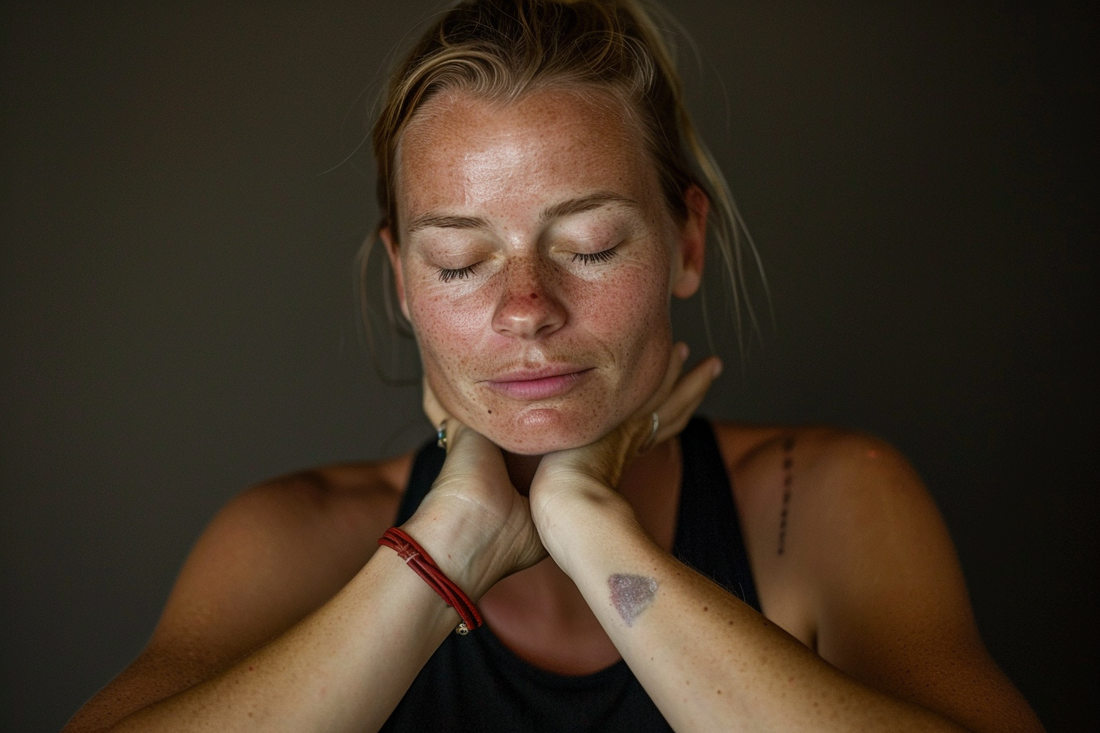
Does Aloe Vera Really Help with Scars?
Aloe vera has long been celebrated for skin benefits. From soothing burns to reducing blemishes, it’s a trusted natural remedy. But, how does it impact scars?
This article explores aloe vera’s role in scar treatment. You’ll learn about its active compounds, how it works, and which scars respond best. Ready for science-backed insights?
Loading...
Understanding How Aloe Vera Helps with Scar Reduction
Aloe vera gel, extracted from the Aloe barbadensis plant, is widely recognized for its therapeutic skin benefits, particularly in fading scars. While it won’t completely erase scars, it supports the healing process, boosts skin regeneration, and reduces scar visibility over time.
What’s in Aloe Vera that Makes It Effective?
Aloe vera’s value lies in its rich composition of active compounds:
- Polysaccharides: These preserve skin moisture and promote cell turnover.
- Glycoproteins: They facilitate cell repair and reduce inflammation.
- Vitamins A, C, E, and B12 nourish skin and support collagen production.
- Aloesin: This compound regulates melanin production, which can lighten scars caused by hyperpigmentation.
- Amino acids and fatty acids soothe inflammation and encourage tissue regeneration.
How Aloe Vera Works to Support Scar Healing
Aloe vera helps the skin through multiple mechanisms:
- Strengthening the immune response to enhance your skin’s ability to repair itself.
- Stimulating collagen and elastin production for skin strength and elasticity.
- Managing inflammation in damaged areas for a calmer healing environment.
- Encouraging the production of healthier skin cells.
- Reducing dark discoloration in scars through melanin regulation.
Scar Formation Phases Where Aloe Vera Can Help
Healing happens in three phases, and aloe vera assists at each stage:
- Inflammation: Aloe minimizes redness and irritation, creating a favorable healing environment.
- Scar Tissue Formation: Its compounds support collagen development to repair damaged skin.
- Remodeling: During this final phase, aloe helps refine scar structure and lighten discoloration.
Which Types of Scars Respond to Aloe Vera?
Aloe vera is especially effective for certain types of scars:
- Inflammatory acne scars: Its anti-inflammatory properties help reduce redness and swelling.
- Hyperpigmented scars: Aloesin lightens dark marks caused by increased melanin production.
- Surgical scars: Enhanced collagen production can improve the scar’s texture and elasticity.
- Minor wound scars: Nutrients in aloe vera speed up tissue repair and create smoother skin.
For deep and raised scars like keloids, aloe vera offers limited benefits and may need to be paired with professional treatments for noticeable improvement.
How to Use Aloe Vera for Scar Treatment
Preparing Your Skin
Always start with clean, dry skin. Avoid cleansers with harsh chemicals that might irritate the area.
Extracting Aloe Vera Gel
If available, cut an aloe leaf from a mature plant, slice it open, and scoop out the clear gel. You can use this fresh gel directly on your skin.
Applying Aloe Vera
Apply a thin layer of gel to your scar, massaging it in circular motions to boost absorption. Repeat this 2–3 times daily for consistent results over weeks.
Enhancing Aloe Vera’s Benefits
You can mix aloe vera with other natural ingredients to enhance its effects:
- Vitamin E oil: Promotes deeper skin repair.
- Honey: Adds antibacterial support to prevent infections.
- Coconut oil: Deeply hydrates the skin for better recovery.
Always Perform a Patch Test
Before widespread application, test aloe vera gel on a small area to ensure your skin doesn’t react negatively.
How Long Before You See Results?
Aloe vera typically requires consistent application for several weeks or months to notice visible improvements. Its effectiveness depends on the scar’s type, depth, and age. Newer scars often respond more quickly to treatment.
What Does Science Say About Aloe Vera and Scars?
Research supports aloe vera’s role in enhancing wound healing, reducing inflammation, and promoting collagen production. Studies emphasize its ability to aid newer scars rather than older, deep-set scars. For maximum benefit, combine aloe vera treatments with a broader skincare plan designed for your specific needs.
Managing Expectations for Scar Treatment
Aloe vera works best as a supportive treatment and helps complement other methods rather than offering a standalone solution. You’ll see more substantial benefits by using it consistently while maintaining a balanced skincare routine tailored to your skin’s unique needs. For more persistent scars, consulting a dermatologist can open additional options for progress.
Practical Tips for Aloe Vera Scar Treatment
Aloe vera is a powerful, natural remedy that supports scar reduction by promoting healing and skin regeneration.
With proper application, it can help fade scars from acne, surgery, or minor wounds, offering steady improvements.
Key Benefits of Aloe Vera
Aloe vera contains vitamins, polysaccharides, and amino acids that promote skin hydration, reduce inflammation, and support healing.
- Boosts collagen production, improving scar elasticity and texture.
- Reduces discoloration by regulating excess melanin production in hyperpigmented scars.
- Soothes and calms inflamed areas, speeding up recovery.
Steps for Effective Use
Consistency is essential when using aloe vera for scar reduction. Daily application increases its effectiveness over time.
- Clean and dry the scarred area to ensure the gel absorbs effectively.
- Apply fresh aloe vera gel or a pure commercial alternative in thin layers.
- Massage gently in circular motions, allowing the skin to absorb for 20–30 minutes.
- Reapply 2–3 times daily for sustained benefits in skin appearance.
Complementary Applications
For enhanced results, aloe vera can be combined with natural ingredients like coconut oil, honey, or vitamin E.
- Coconut Oil: Provides deep hydration, aiding faster recovery.
- Vitamin E: Boosts skin repair and offers antioxidant benefits.
- Honey: Supports bacteria-free healing while moisturizing skin.
Important Considerations
Aloe vera works best on newer scars and milder skin conditions. Deep or raised scars may require professional care.
Before widespread use, conduct a small patch test to ensure compatibility with your skin type.
Consistent application and a balanced skincare routine can ensure long-term benefits for skin health and scar improvement.
Citations:
https://littleextralove.com/blog/skin-care/aloe-vera-for-acne-scars https://www.healthline.com/health/aloe-vera-for-acne-scars https://banish.com/blogs/article/aloe-vera-gels-amazing-benefit-for-acne-scars https://timesofindia.indiatimes.com/life-style/beauty/how-to-effectively-fade-scars-with-aloe-vera/articleshow/113402331.cms https://www.healthline.com/health/aloe-vera-for-acne https://www.ncbi.nlm.nih.gov/pmc/articles/PMC4452276/ https://www.ncbi.nlm.nih.gov/pmc/articles/PMC4346581/ https://www.ncbi.nlm.nih.gov/pmc/articles/PMC3931201/ https://www.ncbi.nlm.nih.gov/pmc/articles/PMC3931201/ https://www.ncbi.nlm.nih.gov/pmc/articles/PMC4452276/©copyright 2024, Valentia Skincare, All rights reserved.










